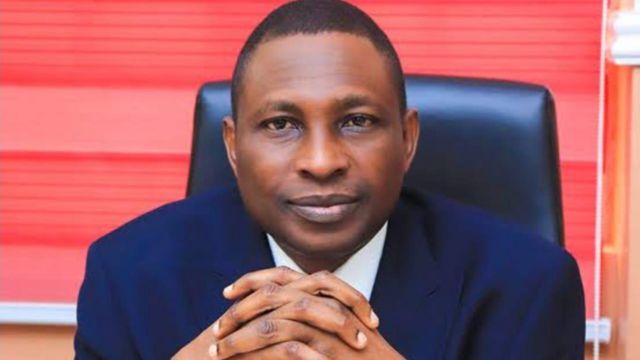The Executive Chairman of the Economic and Financial Crimes Commission (EFCC), Mr. Ola Olukoyede, has urged the government to bolster its whistleblowing policy to intensify the battle against economic and financial crimes.
Speaking in Abuja on Thursday, 11th July 2024, during the Inter-Agency Task Team (IATT) event, Olukoyede emphasised the need for a more functional and effective whistleblowing system to enhance public sector accountability and transparency.

Addressing Weaknesses in the Whistleblowing Policy
Olukoyede highlighted that since its inception in 2016, the whistleblowing policy had garnered significant public support, leading to substantial recoveries by the EFCC. However, he noted that the momentum has waned, necessitating a review and modification of the policy. He identified several weaknesses that need addressing:
- Legal Protection for Whistleblowers: Olukoyede stressed the importance of a comprehensive legal framework to protect whistleblowers from persecution and punishment. He advocated for a whistleblower protection law that safeguards insiders who expose wrongdoing within various government organs.
- Streamlined Reporting Channels: He called for clear guidelines on reporting channels and procedures for determining and paying incentives to whistleblowers. This would include identifying specific agencies responsible for receiving whistleblower information.
Moral Foundation Over Monetary Incentives
Olukoyede urged Nigerians to focus on the moral duty of whistleblowing rather than financial rewards. “A sustainable whistleblower programme should be anchored on a moral foundation where citizens provide information as a matter of patriotic duty, not propelled by a desire for reward. Whistleblowing should be organic, not driven by pecuniary considerations,” he said.
Preventing Corruption Before It Happens
Olukoyede emphasised that whistleblowing should be proactive, aiming to prevent the theft of public funds rather than merely recovering stolen assets. “We should be more interested in whistleblowing that prevents the stealing of public funds rather than the recovery of funds. Once funds are looted, the entire loot may never be recovered,” he stated.
Government Commitment and Support
In his keynote address, the Attorney General of the Federation and Minister of Justice, Lateef Fagbemi, SAN, reiterated the government’s commitment to fighting corruption. He advocated for robust protection for whistleblowers and highlighted the administration’s efforts to block loopholes in Ministries, Departments, and Agencies (MDAs) to prevent graft.
“Corruption is a cankerworm, especially in the public service. The government is committed to tackling it head-on and will work closely with all agencies to ensure corruption is addressed effectively,” Fagbemi said.
Encouraging Whistleblowing and Legal Protections
The Statistician-General of the Federation and CEO of the National Bureau of Statistics, Adeniran Adeyemi, highlighted the importance of encouraging whistleblowers and providing legal protection. He pointed to positive trends, noting that 70% of citizens refused to take bribes in 2023, showing significant progress in anti-corruption efforts.
International Support and Recommendations
Danilo Campisi, the Country Director of the United Nations Office on Drugs and Crime (UNODC), praised Nigeria’s commitment to the fight against corruption. He emphasised the need for confidentiality to protect whistleblowers and encouraged behavioural changes among Nigerians, especially the youth.
“Nigeria has demonstrated considerable commitment to anti-corruption efforts. Prioritising prevention and encouraging behavioural change is crucial, and the best way to protect whistleblowers is through the confidentiality of information,” Campisi said.
Support InfoStride News' Credible Journalism: Only credible journalism can guarantee a fair, accountable and transparent society, including democracy and government. It involves a lot of efforts and money. We need your support. Click here to Donate
